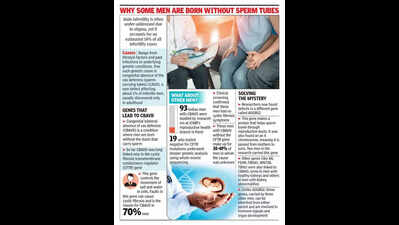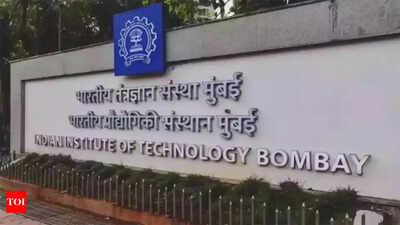Mumbai: For years, a rare form of male infertility, in which men are born without the tubes that carry sperm, was blamed on a single gene tied to cystic fibrosis. Now, researchers in Mumbai have identified a broader set of genes in Indian men, including one passed from mothers to sons, that help explain this condition, called congenital absence of the vas deferens (CAVD).Although the research gained momentum in 2019, its roots stretch back to 2011. The findings promise not only better understanding of the condition but also more informed treatment options and genetic counselling for couples. Fresh from Parel’s ICMR-National Institute for Research in Reproductive Health (ICMR-NIRRCH), a paper published earlier this week in Reproductive Sciences reported that so far, mutations in the CFTR gene (Cystic Fibrosis Transmembrane Conductance Regulator) explain congenital bilateral absence of the vas deferens (CBAVD) in roughly 70% of Indian men with the condition. But until now, the remaining 30-40% had no clear genetic explanation. When only one tube is missing, the condition is called congenital unilateral absence of the vas deferens (CUAVD). It sometimes occurs alongside kidney abnormalities but is rare, accounting for 0.04% of male infertility cases.When both tubes are missing, CBAVD accounts for 2-3% of Indian male infertility cases and up to 25% of men with obstructive azoospermia (no sperm in semen). For these couples, IVF is the only option. “Stigma is associated with infertility. Women are often blamed even if the biological issue lies with the man,” said Dr Prakash Pawar, a urologist at Sion Hospital. “Male infertility is a growing global issue. High-burden tertiary care hospitals see a few cases of CBAVD annually.“Of the 93 men in the study, 19 had tested negative for the known CFTR gene. Using whole-exome sequencing on these 19 samples, the researchers discovered a new X-linked gene called ADGRG2, which can be passed from mothers to sons and is linked to CBAVD. This gene was found in two of the 19 men studied. “Research groups in Europe and other countries have also reported similar pathogenic variants in ADGRG2. What makes our study significant is that this is the first time ADGRG2 has been identified in Indian men with infertility,” said Dr Rahul Gajbhiye, scientist at ICMR-NIRRCH and principal investigator of the study. He said that in light of the findings, whole-exome sequencing should be considered for genetic screening of CBAVD, covering CFTR, ADGRG2, and other candidate genes, before couples undergo intracytoplasmic sperm injection (ICSI), a procedure in which sperm is retrieved directly from the testicles and injected into the egg in the lab.











